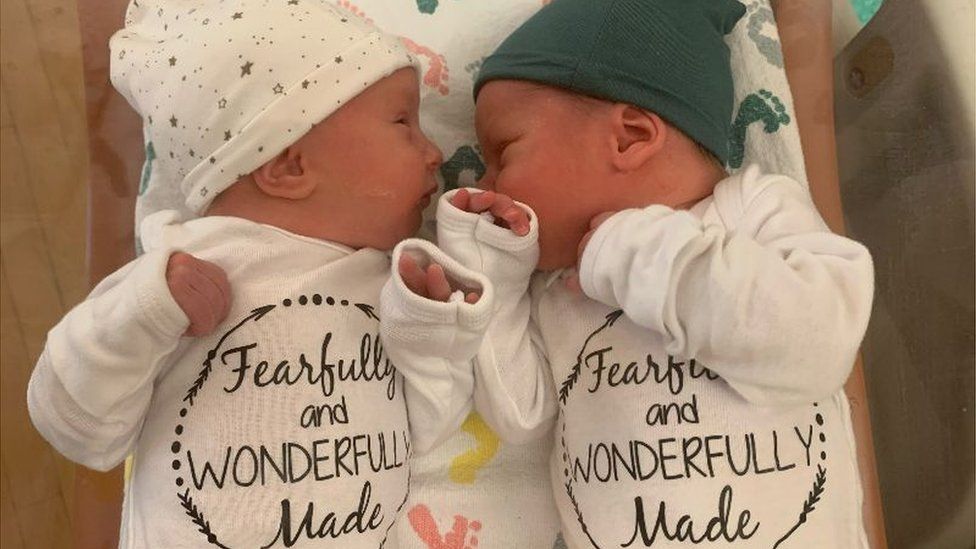Twin babies have been born in the US state of Tennessee from embryos frozen more than 30 years ago.
It is believed to be a new record for the longest-frozen embryos ever to result in a successful live birth.
They were stored at around -128C (-200F) in liquid nitrogen on 22 April 1992.
Rachel Ridgeway, a mother of four from Oregon, gave birth to the twins on 31 October. The father, Philip Ridgeway, said it was "mind-boggling".
Lydia Ann and Timothy Ronald Ridgeway likely set a new record, according to the National Embryo Donation Center (NEDC), a private faith-based organisation that says it has helped birth more than 1,200 infants from donated embryos.
NEDC's previous record-holder, Molly Gibson, was born in 2020 from an embryo that had been frozen for nearly 27 years.
"The decision... to adopt these embryos should reassure patients who wonder if anyone would be willing to adopt the embryos that they created 5, 10, 20 years ago," said Dr John David Gordon, who performed the embryo transfer.
"That answer is a resounding yes!"
The twin embryos had been created for an anonymous married couple using IVF. The man was in his 50s and reportedly relied on a 34-year-old egg donor.
They were kept in storage at a fertility lab on the US west coast until 2007 when the couple donated them to the NEDC in Knoxville, Tennessee for another couple to use them instead.
Embryologists at the NEDC's partner clinic Southeastern Fertility then performed the thaw and transfer to the uterus earlier this year.
In a statement, the NEDC said it hoped the news would "encourage others to experience the blessings of embryo adoption for themselves".
It is the first child the Ridgeways - who have four other children between the ages of one and eight - have had via IVF or donors.
"I was five years old when God gave life to Lydia and Timothy, and he's been preserving that life ever since," Philip Ridgeway told CNN from the family's home.
"In a sense, they're our oldest children, even though they're our smallest children."
"There is something mind-boggling about it," he added.

(BBC)
Leave Comments